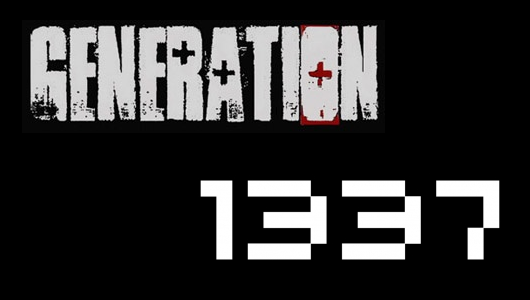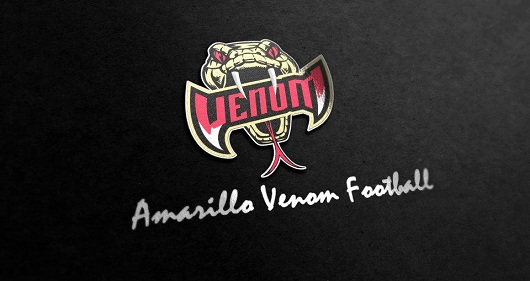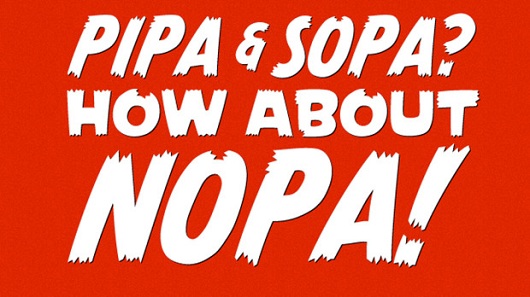“Life moves pretty fast. If you don’t stop and look around once in a while, you could miss it.” – Ferris Bueller
While the video gaming age may have started as far back as the 1940s with a Cathode Ray Tube, for most of us it started in the 1980s with Nintendo. What began as just another hobby, just another game for kids to play, has exploded into what we have today: a gigantic, lucrative industry with a broad “gamer” culture all its own.
Unfortunately for gamers, a large portion of the generations that proceeded us still think of video games the way they did back in the 1980s. At best, many think of video games as something just for kids. At worst they think of video games as just another entertainment medium like music or movies, and that they should be disseminated and monetized the same way. This can not only lead to awkward conversations with Grandpa, but it also means that the men and women who are leaders of big companies, government bodies and the like are almost totally clueless and ham-fisted when it comes to making decisions that affect video gaming. It’s a medium and culture they don’t understand beyond sales figures and bullet points from the talking heads on TV.
When I say “gamer culture” in conversation with people who are not gamers, I’m as likely to get a scoff or sneer as I am to get any response at all. The idea that a “game” is more than just a game is simply an idea few of my elders even consider. It’s is a connection with my peers, the universal hobby of nerds, the core entertainment medium of the gaming generation, and something which shapes not only language, but music, movies, TV, books and more .
While many from the gaming generation(s) run their own development studios and operate at the executive level of many gaming related fields, the gaming generation(s) is not yet truly in control of our own medium or culture. It’s being dictated to us by a generation(s) whose point of view bares little resemblance to ours.
The previous generation always resists the current one. I’m 30 years old, and I’m already looking at some of the behavior of teenagers today and shaking my head (SWAG!). However, I find that disconnection to be more along the lines of taste and style rather than products or major viewpoints. The gaming generation that started in the 80s is also the first generation to truly grow up with technology in the home. While my parents and grandparents (one Grampa is an uber nerd though) were slow to adapt to new technology, my generation and those that have since arrived adopt and wave into new technology with a hunger and passion that I think disconcerts the older generations.
The closest comparison I can make to describe how big a part of my life video gaming is to compare it to football in small-town USA. I once took a road trip through Texas on my way to Amarillo (best steak I’ve ever eaten) for a MUD convention and noticed that football is pretty much THE defining activity for just about everyone. From the players to the coaches to the boosters, the fans and store fronts, everything from the clothes they wore to the music they listened to had a football vibe to it.
That’s what video gaming is like among my friends and family. We work normal jobs, go to school and all the normal things everyone does, but our favorite hobby tinges everything we do. I have a Fallout bobblehead on my desk at work (when I have work and a desk) and my MP3 player is as likely to contain video game podcasts and select soundtracks as it is to contain anything else. I’m often rocking a gaming related t-shirt under my button-up and nobody except for my parents uses my real name. Gaming usually sneaks into just about every conversation and most if not all our free time (money) is devoted to gaming. Without being man (or woman) cave trolls, of course. The big conventions like E3 and the Tokyo Game Show are our Super Bowl and people like David Jaffe (muck yeah!) are our quarterbacks. Unless we are talking E-Sports in which case HuK and/or Leenock are my favorite QBs.
Even the word “gamer” has almost no meaning anymore if you are under 25 year of age. It’s like calling someone human. It’s pretty much assumed that the average middle class teen is a gamer in one way, shape or form. Even kids who don’t play games as their main hobby are peripherally aware of gaming culture and the stigma once attributed to being a “nerdy gamer” bares no resemblance to the mockery and torment heaped on the hardcore gaming nerds of the 80s.Video gaming has expanded beyond just a hobby. It’s a mainstay of current pop culture.
It’s not about being a gamer anymore, for a lot of us it’s deeper than that. Hardcore or casual. Shooter junkie or RPG nut. Jack of all Trades or sports game fanatic.Phone or console. Blogger, podcaster, Youtuber or personality. It’s less about being a gamer now and more about the varied ways that identity is expressed and which portion of the uber broad “gamer” landscape you decide to call home. Best of all, transition from one distinction to another is fluid and varied in a way singular defined hobbies like football or chess can never be.
And yet we have to prove/justify to our elders that video games are in fact art. That they deserve the same protections and freedoms afforded to other media. That video games are not just for kids. One of our biggest struggle is fighting back against the anti-video game news stories that constantly seek to lay the blame for a tragedy at the feet of video games. If your pool for troubled people is in the high millions, finding a troubled youth who played video games is a certainty. The sheer number of gamers means that if video games really did inspire healthy, rational kids to commit horrific acts of violence, most of the developed world would be a bloodbath.
The reality is, video games or not, all of the kids we have seen in the news were troubled. Bullying, some form of abuse, addiction, mental illness or some combination of those evils are always involved with the tragedy’s blamed on video games. I’m not saying a disturbed individual cannot be inspired or influenced by a video game, we know they can be, but to attack the whole medium or even just its adult content because of the actions of an individual is beyond overreaction. It’s futile. Games or not, the mentally ill or emotional disturbed will remain so.
After John Lennon was shot, The Catcher in the Rye, a fantastic yet controversial book everyone should have read already, became the poster child for sensationalizing a piece of media as a major linchpin for violence. Totally ignoring the fact that Mark David Chapman was blatantly and obviously mentally unstable.
Beyond yearly defensive conversations held to discuss video game violence, one of the biggest issues concerning video games is reflected in the recent battles against SOPA (Stop Online Piracy Act) and similar legislation. What is happening is that the old powers, the big movie studios, record labels, ISPs and more want desperately to control not only the flow of information, but also slowly force new media and new technology into an outdated model. I have no doubt many an exec envisions the internet and digital distribution the same way they do television. We buy limited packages which provide us with a few things we want and a bunch of stuff we don’t want but still have to pay for. Certain content is arbitrarily denied us, and other content is forced down our throats no matter how much we vomit.
For every great video game ad that goes viral online we get a host of cheesy “personalities” hocking and discussing games and game culture they know next to nothing about. The Entertainment Tonight reporters of the video game world if you will. I suppose ostensibly these “personalities” ARE gamers, if only for the fact they talk about games. I’ll admit, there are exceptions to the rule. Truly though, the vast majority of the mainstream TV and even some of the larger website personalities are just pretty people with no defining skill set or gamer credibility. They do what the old corporate overlords did to hock and sensationalize movies, music and TV. Being a “personality” is a skill set apparently.
I’ve no doubt many a female gamer groans every time some vapid female “personality” claims to speak on their behalf. As if the gutter bottom of video games “reality” style personalities in any way shape or forms reflects or speaks to the massive amount of women who play video games. Not only do a lot of people think games are for kids, a lot of people also still believe games are just for boys. Especially those who, as I’ve said, simply don’t understand how smart, informed and tech savvy gamers (men & women) actually are. So while we get lots of manly man advertising and promotions, the old exes still think women are niche and beyond a quaint ad for the Sims or Fable. What their left with are bimbos representing them and cheesy marketing for the few games, mostly casual, that old men “think” they play the most. Men are not huge fans of cheesy marketing or vapid personalities either, but the whole tits & ass presentation of many female personalities neuters our outrage.
Lots of movie studios have tapped into video games, usually with disastrous results. It’s pretty much a sure bet that a game based on, or more specifically tied to, a movie will be atrocious. Regardless of the fact that video games in a very real, demonstrable way are more profitably for a longer period than many films, when it comes to tie-ins the good old movie studios still treat video games as merely part of the ad campaign for the movie. Sucker money like the McDonald’s cups and cheap t-shirts that come out with big movies. The amount of power wielded, usually to the detriment of video games, by intellectual property owners from the world of TV and film continues to result in a lot more half-assed projects than gems. Even James Cameron’s Avatar, which he was actually excited about, was garbage and suffered the same short shrift fate so many other games linked to old media do.
Last but not least, we have the awards and celebrations in the gaming world. As cool as it is for a game to win a Grammy or an Oscar or whatever big name award the other mediums give out, when it comes to video game awards all we have are semi-niche ceremonies like the Game Developers Conference (GDC), the Annual Interactive Achievement Awards (DICE), and a few others. The one that reigns supreme as far as public spotlight is the Spike TV Video Game Awards, which is like the MTV Music Video Awards, only even more hollow.
It’s literally an award ceremony where they pick a tiny, minuscule percentage of games, don’t even give any real coverage to said games, and proceed to parade celebrity after celebrity who are there for publicity alone and watch them bumble through some game related dribble they’re told to read. Toss in a few actual gaming celebrities (you can always count on Seth Green) as presenters, and it’s really just a show about a half dozen games, non-gaming celebs making bad gamer jokes and a few trailers. The trailers being the core reason any actual gamer is even watching in the first place. It speaks volumes that despite the brilliant and powerful gamers we have, we’re still treated like pathetic pop culture losers on what should be the biggest night of the year for our favorite developers and games.
All of this will slowly bleed away as my generation and the ones that came after slowly supplant the old regime. It’s just a slow, ugly process in which the people with the money and the power continue to misread our interests and try desperately to maintain control over a technology and a culture that they don’t understand. They are forcing the round peg of gaming into the boring square hole of old media. The more we resist and the harder we work to define the role of gaming in the media landscape, the better. Otherwise we’ll move into a new generation still carrying outdated ideas and slow moving plans that we ourselves inherited from the generations before us.
Things like digital distribution could be a blessing or a curse if we are not careful. The best way to shape the future is be informed and active. We live in a digital age. Harness that power which scares the non-tech savvy generations so much. Understand that things like China’s production of tech products and the coltan coming out of the Congo have very real, horrific costs. Speak up about censorship and fair use legislation. Support the indie developer who may one day be a household name. Resist arbitrary, outdated and artificially slowed forms of distribution, at the same time as focusing digital distribution toward limiting, not increasing the need for there to be a middle man between you and a developer. We need not simply accept things as they are and wait our turn at the helm. We can shape the world we live in even if that means we have to fight against our elders sometimes. By being the best gamers we can be, we can change the realities that negatively affect our culture at the same time as we build upon the aspects we all love. This is true not only for gaming, but life.
Stay frosty.





Darth Nutclench
A great article Pacman. I’m trying very hard to integrate gaming into my teaching, as I know this is a powerful motivational tool for learning. Despite the large amount of research done on this and the work of great organizations such as ConnectEd and the work Sony and Microsoft do for education, I still get fobbed off, or in some cases laughed out of the staff room, by my educational peers. It’s going to take a long time before gaming is accepted as a valid and non-nerdy pastime.
maybe_mike123
Great article! Keep up the good work =D
Sietch
Word!
What else is there to say ? 🙂
son_of_ottie
You’re a superb writer. And I agree with everything you say.
I will be 49 this year and I have more in common with my great-nephews and great-nieces precisely because I am a gamer.
Every time I hear THE WORLD IS SAVED by Danny Weissner I have to stifle my tears.
The interactive nature of gaming has to be experienced to be understood. It’s not a spectator event like sports or movies or TV or any of those things. You HAVE to become involved.
The relationship between gamers and others is like the relationship between Kevin Costner and Timothy Busfield in FIELD OF DREAMS before Busfield can SEE THE PLAYERS. They have to become involved in some way to understand.
As for the Spike “Awards”…I avoid them. I don’t see why gamers and an alliance of gaming journalists don’t create a kind of “Golden Globes” of gaming. Let’s get on that!
And thanks for such a great piece….Eric. 😉
PacManPolarBear
Wow. Thank you all for the kind words.
kwest
Fantastic article PacMan. Being a gamer in my mid 30’s it can be tough to explain the culture to other folks my age without them thinking I’m a troll living in my parent’s basement. I relate more to folks ten years my junior than my own peers.
SavageChipmunk
Great job PacMan
PacManPolarBear
^ Every week my friend.
FISHANIMAL
Fantastic article PMPB. It really is sad how much public outcry there is for the VGA’s. All they have to do is take a look at twitter and they can see EXACTLY what they do wrong….because they do it year after year.
Providence
Lead the way PacMan. I’m with you 100%
Ignorance breeds more ignorance, which leads to censorship, and ultimately totalitarianism. I will fight with you, you’ve said what I constantly attempt to explain, better than I could ever have tried to. Everyone show someone you know, who knows nothing about gaming, this article. Even if they don’t agree, they need to understand.
Vague
Awesome post PacMan. Had to send it around the office 🙂
JaffaKira
This is easily one of my favourite articles on the internet atm. I have this argument with my parents so often purely because they just don’t ‘get’ games. Still, you can see game culture seeping through the cracks of society now. Great read!